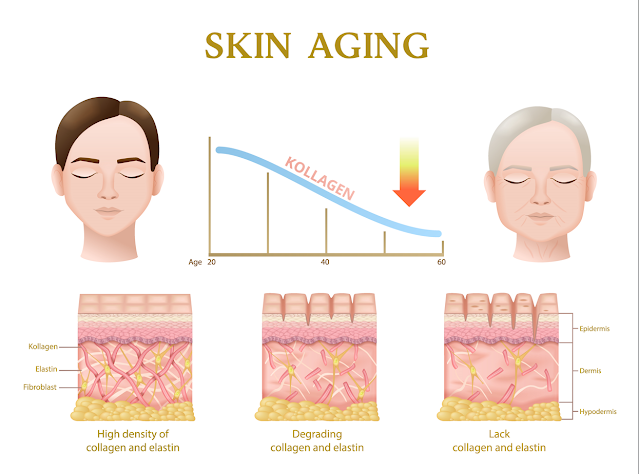If you're looking to enhance your skincare routine with high-quality products, ZO Skin Health offers a range of effective solutions. Founded by Dr. Zein Obagi, a renowned dermatologist, ZO Skin Health focuses on creating innovative skincare products that promote healthy, radiant skin. However, finding the right place to purchase these products can be a challenge. In this article, we will guide you on where to buy ZO Skin Health products, ensuring that you can easily access and enjoy their exceptional skincare offerings.
Introduction
Taking care of your skin is essential for maintaining a healthy and youthful appearance. ZO Skin Health products are designed to address various skin concerns, including aging, acne, hyperpigmentation, and sun damage. Before we delve into where to buy these products, let's gain a better understanding of ZO Skin Health and why it has gained popularity among skincare enthusiasts.
Understanding ZO Skin Health
ZO Skin Health is a reputable brand known for its science-backed skincare solutions. Dr. Zein Obagi, the founder of ZO Skin Health, has dedicated his career to developing skincare products that deliver visible and long-lasting results. The brand's philosophy revolves around the concept of "Creating Skin Health" rather than merely treating skin conditions.
ZO Skin Health products are formulated with high-quality ingredients that target specific skin concerns. Whether you're looking to improve texture, reduce fine lines, or brighten your complexion, ZO Skin Health offers a comprehensive range of products tailored to your needs.
Authorized Retailers
To ensure you're purchasing genuine ZO Skin Health products, it is recommended to buy from authorized retailers. These retailers are authorized by ZO Skin Health to sell their products, ensuring authenticity and quality. You can find a list of authorized retailers on the official ZO Skin Health website or by contacting their customer service.
Online Marketplaces
While online marketplaces offer convenience and accessibility, it's crucial to exercise caution when purchasing ZO Skin Health products from these platforms. Counterfeit products can be prevalent, and it's essential to verify the authenticity of the seller before making a purchase. Stick to reputable online marketplaces and always check customer reviews and ratings to ensure a positive buying experience.
ZO Skin Health Website
The official ZO Skin Health website is a reliable and trustworthy source to purchase their products. The website provides comprehensive information about each product, including detailed descriptions and usage instructions. Additionally, buying directly from the brand's website ensures you receive authentic products and access to their customer support if needed.
Dermatology Clinics and Med Spas
ZO Skin Health products are often available at dermatology clinics and medical spas. These establishments are staffed by skincare professionals who can assess your skin concerns and recommend the most suitable products from the ZO Skin Health range. Visiting a dermatology clinic or med spa not only allows you to purchase the products but also provides an opportunity to receive personalized skincare advice.
Professional Recommendations
Consulting with a dermatologist or skincare professional is highly beneficial when considering ZO Skin Health products. These experts can evaluate your skin type, understand your specific concerns, and recommend a customized skincare regimen using ZO Skin Health products. By seeking professional recommendations, you can maximize the effectiveness of the products and achieve optimal results.
Importance of Authenticity
When purchasing ZO Skin Health products, it is crucial to prioritize authenticity. Counterfeit skincare products can potentially harm your skin and provide subpar results. To ensure authenticity, always buy from authorized retailers, official websites, or reputable dermatology clinics and med spas. Avoid purchasing products from unverified sources or heavily discounted deals that seem too good to be true.
Tips for Buying ZO Skin Health Products
Here are some tips to help you make a secure purchase of ZO Skin Health products:
Research authorized retailers and check their credibility.
- Read customer reviews and ratings before making a purchase.
- Verify the authenticity of online sellers.
- Purchase directly from the official ZO Skin Health website when possible.
- Consult with a skincare professional for personalized recommendations.
- Customer Reviews
Here are some testimonials from individuals who have experienced the benefits of ZO Skin Health products:
"ZO Skin Health transformed my skin! The products are worth every penny." - Sarah D.
"I've struggled with acne for years, but ZO Skin Health finally gave me the clear skin I've always wanted." - John M.
"The ZO Skin Health products have helped me combat the signs of aging and regain my confidence." - Emily R.
Conclusion
ZO Skin Health products are an excellent choice for those seeking effective skincare solutions. By following the guidelines mentioned in this article, you can confidently purchase authentic ZO Skin Health products. Remember to prioritize authenticity and seek professional recommendations for optimal results. Invest in your skin's health and enjoy the benefits of ZO Skin Health's innovative skincare offerings.
FAQs
Q1: Are ZO Skin Health products suitable for all skin types?
A1: Yes, ZO Skin Health offers a range of products suitable for various skin types, including oily, dry, combination, and sensitive skin.
Q2: Can ZO Skin Health products be used during pregnancy or while breastfeeding?
A2: It is recommended to consult with your healthcare provider before using any skincare products during pregnancy or while breastfeeding.
Q3: How long does it take to see results with ZO Skin Health products?
A3: The time taken to see results may vary depending on individual factors and the specific products used. However, many users report noticeable improvements within a few weeks of regular use.
Q4: Are ZO Skin Health products tested on animals?
A4: No, ZO Skin Health is committed to cruelty-free practices and does not test its products on animals.
Q5: Can ZO Skin Health products be used alongside other skincare brands?
A5: It is generally safe to incorporate ZO Skin Health products into your existing skincare routine. However, it's essential to patch-test new products and assess compatibility with your skin.
read more →












